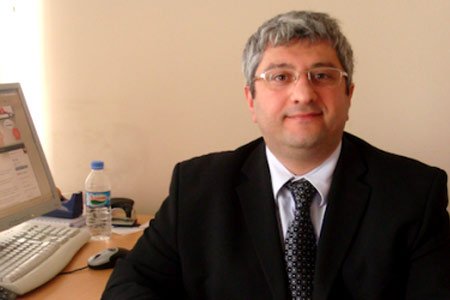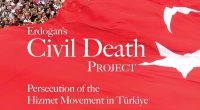Turkey’s Kurdish question and the Hizmet movement

Date posted: March 20, 2015
This is the title of a new report authored by Dr. Mustafa Gurbuz and published on the website of the US-based think tank Rethink Institute (www.rethinkinstitute.org).
As I have repeatedly written, President Recep Tayyip Erdoğan and the Justice and Development Party (AKP) have never been sincere in solving the Kurdish problem. Having seen that his votes are gradually moving towards the Nationalist Movement Party (MHP), Erdoğan will return to nationalist rhetoric. He can always fabricate a culprit to blame and he will tell his captive audience that it is the Hizmet movement and Peoples’ Democratic Party (HDP) which destroyed the peace process.
In the Western parts of Turkey, he can easily say that Hizmet is pro-Kurdistan Workers’ Party (PKK) and in the east, Hizmet is Turkish nationalist, depending on the context and the audience’s ideological preferences.
Thus, it is crucial to see a report meticulously and critically analyzing Hizmet’s position on the Kurdish problem. The report underlines that “critics find the Hizmet initiatives to be assimilationist, while Hizmet volunteers believe that they are addressing the root causes of ethnic conflict, such as prejudice and ignorance. Some TV series in Hizmet-affiliated media have drawn especially strong criticism. Nonetheless, the Hizmet movement’s overall attitude regarding pro-Kurdish reforms has been progressive.”
The report’s takeaways are: 1. The Kurdish question poses a challenge not only to Turkey at large, but also to the Hizmet movement, which has a diverse following that includes a large number of Kurdish participants.
2. By recognizing Kurdish identity, the Hizmet movement has taken a progressive attitude by supporting ethnocultural reforms in both discursive and institutional conduct.
3. Educational and charitable efforts by Hizmet volunteers are aimed at removing prejudices in both Turkish and Kurdish constituencies, and accordingly, building social trust in the long run.
4. Critics find Hizmet to be assimilationist. The main reason referred to by critics is the content of some TV shows in Hizmet-affiliated media.
5. The AKP government’s attempt to shut down Hizmet schools in the region has accelerated disenchantment with the peace process among Hizmet participants.
6. Hizmet participants find official talks with the PKK on disarmament acceptable with one caveat: Kurdish cultural rights should not be on the table with the PKK, since that would make the PKK “the” legitimate advocate of all Kurds.
7. As long as the AKP government negotiates pro-Kurdish rights solely with the PKK, refusing to consult other civil actors including the Hizmet organizations, the movement’s constituency may remain skeptical about the peace process.
The report notes “the Hizmet-affiliated media experiences serious difficulties in speaking to both its Turkish and Kurdish constituencies. The Kurdish issue is potentially a divisive issue, not only for the country, but also within the movement itself. One major challenge stems from strong support for the Hizmet movement among Turkish nationalists.
“The movement recruited a large number of youngsters from Turkish nationalist parties such as MHP after the 1980s. Although these recruits were transformed by the movement and became more global in perspective, some form of nationalism has always been in place.
“This reality was reinforced by Turkey’s increasing integration with the global neoliberalist system, which has revived a heavy nationalist tone in Turkish politics, including secular nationalism (ulusalcilik) and religious nationalism (neo-Ottomanism). As they are frequently portrayed as ‘pro-American’ and ‘pro-Israel,’ Hizmet participants often find themselves in need of highlighting their patriotism.”
The report also quotes the Hizmet-inspired İstanbul Institute’s September 2014 report that criticized the Hizmet media. The İstanbul Institute report included a comment by a Kurdish Hizmet volunteer: “Our movement has become Russian in Russia and black in Africa; and yet, it could not achieve becoming Kurdish in Kurdistan.” I strongly recommend the report and thank both the author and the Rethink Institute.
Source: Today's Zaman , March 18, 2015
Tags: Hizmet (Gulen) movement | Kurdish Issue | Turkey |
























